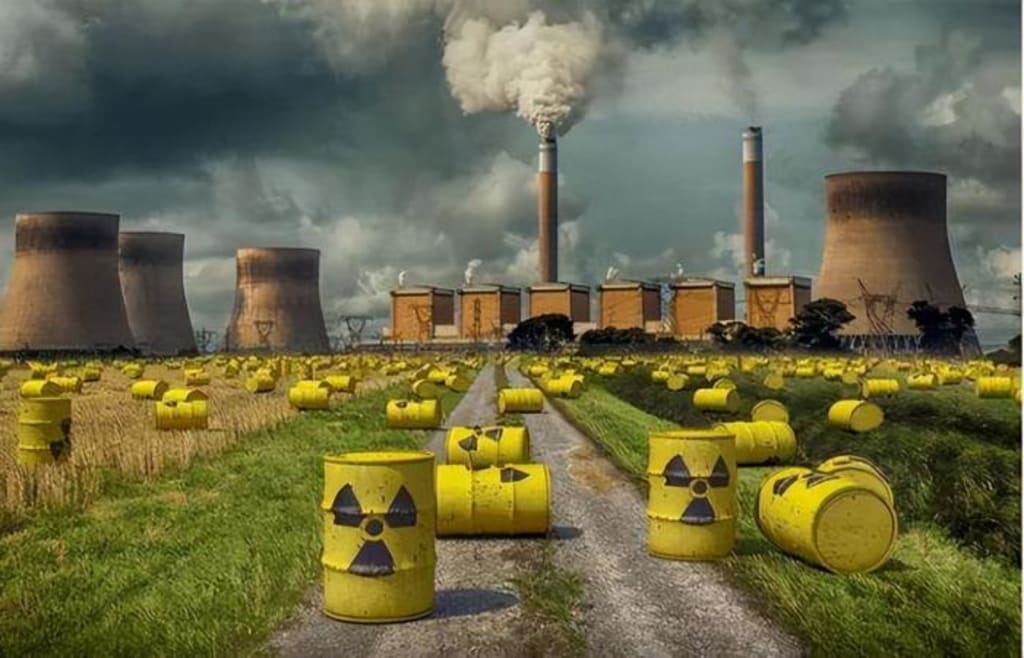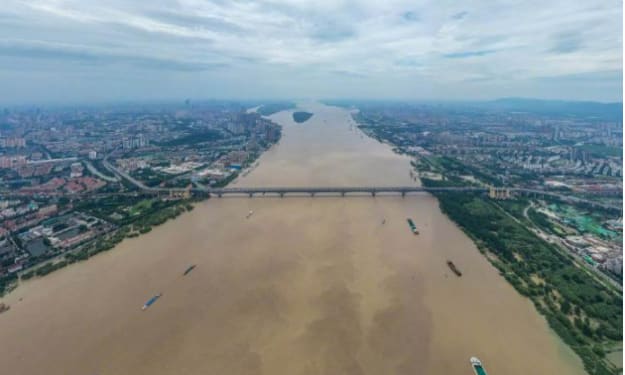Japan discharges nuclear wastewater into the sea, which will pollute global waters in 10 years and affect Earth's species
Japan discharges nuclear waste water into the sea

Japan's nuclear wastewater discharge date has been postponed. Has Japan given up discharging nuclear wastewater? Has it found its conscience?
However, according to Japan's Tokyo Electric Power Company on August 3, the nuclear wastewater discharge project will be officially launched on the 4th. Once the project is completed, the nuclear wastewater discharge scheme will be officially implemented. According to the time limit, the plan will be implemented next spring at the earliest.
This means that nuclear wastewater will still be discharged into the sea. No matter how many voices in the world stop it, Japan continues to ignore it and is bent on going ahead. Little do they know that such behavior is detrimental to others and more than pays for itself.
Nuclear waste water is water that contains radioactive substances. When the nuclear leak occurred, water was constantly injected to cool the nuclear reactor and prevent a big explosion. In addition, some of the water came from rainwater and groundwater. Over time, more and more nuclear wastewater is produced.
To ensure that nuclear wastewater does not leak to the outside world, where it can have a serious impact, Japan has built more than 1,000 nuclear wastewater storage tanks. In April last year, more than 90% of the tanks were filled. With the increasing amount of nuclear waste water, there are no more storage tanks. It is worth noting that all the storage tanks together can store around 1.37 million tonnes of water.
Now that the water storage tanks are full, this has become an excuse and a backbone for Japan to start its nuclear wastewater discharge program. But as you can see from the satellite map, in addition to the densely packed water storage tanks, there are unused areas next to Fukushima that could be used to store nuclear wawastewaterSo Japan's claim of storage space is nonsense, and the underlying reason is an unwillingness to bear the high cost of maintenance.
Nuclear wastewater contains radioactive elements that can only decompose for hundreds or even thousands of years. It is well known that radioactive elements are extremely harmful to living things. Once discharged into the sea, nuclear waste water will have a huge impact on the entire planet.
Firstly, the nuclear waste water will first contaminate the Pacific coastal waters of Japan, especially the waters around Fukushima, which are the most polluted. Then, under the action of ocean currents, the pollutants would contaminate half of the Pacific Ocean in about 57 days and the entire planet in 10 years. But nuclear wastewater contains radioactive elements such as carbon 14, which will still be harmful even after 1,000 years.
What's more, Japan is a country with a well-developed fishing industry. It has one of the largest fishing grounds in the world, which affects not only the income of local fishermen but also the survival of fish. It is clear that this is not just an internal problem for Japan, but also affects the environment of the entire planet.
Several mutant species have been salvaged from the waters off Japan. For example, on 30 November 2020, a mutated nine-legged octopus was found off the coast of Japan. It was found not far from Fukushima, so some netizens suspected that the mutation was caused by nuclear contamination. What's even scarier is that once people mistakenly eat fish contaminated with nuclear wastewater, it can affect genes in the human body, increasing the probability of cancer, and even some mutations are heritable and could cause the degradation of human populations.
Ever since Japan announced its plan to discharge nuclear wastewater into the sea, people all over the world have unanimously condemned it. However, Japan has completely ignored the cries of the people of the world and public opinion and insisted on discharging nuclear wastewater into the sea. Judging from the current process, the discharge of nuclear wastewater into the sea appears to be irreversible. Nuclear safety has always been the most critical aspect of nuclear development. With the development of science and technology, the technology for safeguarding nuclear safety is becoming more and more advanced, and mankind is walking more and more solidly on the path of nuclear safety. However, accidents always come at an unknown time. Therefore, in nuclear construction, nuclear safety remains the most important thing we need to be vigilant about.
In response, how do you view Japan's discharge of nuclear waste water?
About the Creator
Ferrari Ron
Science makes life better






Comments
There are no comments for this story
Be the first to respond and start the conversation.